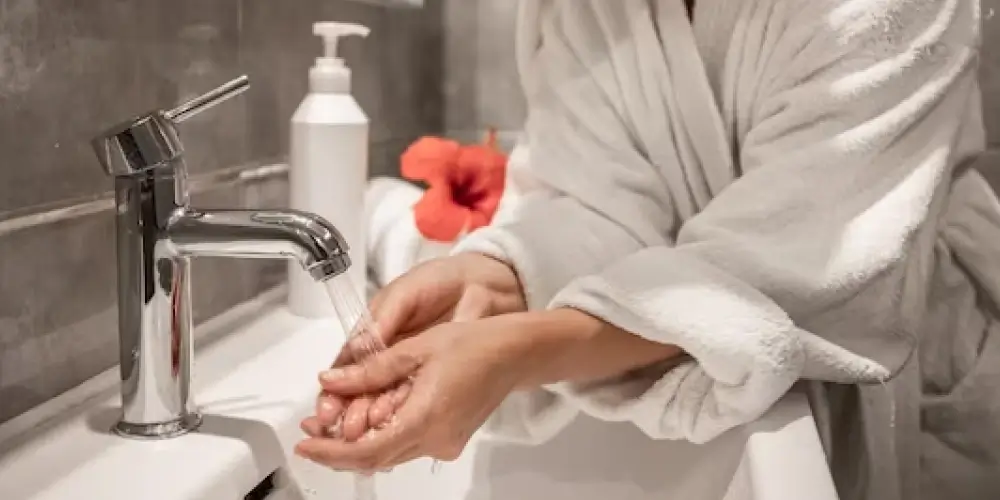

Daily Personal Hygiene Routines: Essential Components
17/08/2024 Sara Allen 2519
Personal hygiene is foundational to maintaining health and well-being by preventing the spread of infectious diseases, promoting skin integrity, and enhancing overall cleanliness. A daily hygiene routine encompasses a series of practices designed to maintain cleanliness and health across various bodily systems. In this blog, we will explore the essential components of daily personal hygiene routines, backed by medical expertise and scientific evidence.
1. Oral Hygiene
Oral hygiene is crucial for maintaining dental health and preventing oral diseases such as cavities, gum disease, and bad breath.
-
Brushing Teeth: Brush teeth at least twice a day using fluoride toothpaste and a soft-bristled toothbrush. Proper technique involves brushing in gentle circular motions to remove plaque and debris.
-
Flossing: Floss daily to clean between teeth and along the gumline, where toothbrush bristles cannot reach.
-
Mouthwash: Rinse with antimicrobial mouthwash to reduce bacteria and freshen breath.
-
Tongue Cleaning: Use a tongue scraper or brush to remove bacteria and food particles from the tongue surface.
2. Bathing and Showering
Regular bathing and showering help cleanse the skin, remove sweat and dirt, and promote relaxation.
-
Frequency: Bathe or shower daily, or as needed based on individual preferences and activities.
-
Water Temperature: Use warm water to open pores and facilitate cleansing without stripping natural oils.
-
Soap or Cleanser: Use mild soap or cleanser to wash the entire body, paying attention to areas prone to sweat and odor.
-
Hair Care: Shampoo hair regularly, depending on hair type and scalp condition.
-
Foot Care: Clean feet thoroughly, especially between toes, to prevent fungal infections.
3. Hand Hygiene
Hand hygiene is critical for preventing the spread of infectious diseases by removing pathogens from the hands.
-
Handwashing: Wash hands with soap and water for at least 20 seconds, especially before eating, after using the restroom, and after coughing or sneezing.
-
Hand Sanitizers: Use alcohol-based hand sanitizers containing at least 60% alcohol when soap and water are not readily available.
4. Hair and Scalp Care
Maintaining scalp and hair hygiene contributes to overall cleanliness and prevents scalp conditions.
-
Shampooing: Wash hair regularly with a suitable shampoo based on hair type and scalp condition.
-
Conditioning: Use conditioner to nourish and moisturize hair, focusing on the ends to prevent dryness and breakage.
-
Scalp Care: Massage scalp gently to stimulate circulation and remove dead skin cells.
5. Facial Care
Facial hygiene involves cleansing, moisturizing, and protecting the delicate skin of the face.
-
Cleansing: Use a gentle facial cleanser twice daily to remove dirt, oil, and makeup.
-
Exfoliation: Exfoliate skin 1-2 times per week to remove dead skin cells and promote cell turnover.
-
Moisturizing: Apply a moisturizer suitable for your skin type to hydrate and protect the skin barrier.
-
Sun Protection: Use sunscreen with broad-spectrum SPF 30 or higher daily to prevent sun damage and premature aging.
6. Nail and Foot Care
Proper nail and foot hygiene prevent infections and promote healthy nails and skin.
-
Nail Care: Trim nails regularly, keeping them short and clean. Use a nail brush to remove dirt and debris from under the nails.
-
Cuticle Care: Gently push back cuticles and moisturize to prevent dryness and hangnails.
-
Foot Hygiene: Wash feet daily, especially between toes. Dry thoroughly, apply moisturizer, and wear clean socks and properly fitting shoes.
-
Foot Inspection: Check feet regularly for signs of infection, such as redness, swelling, or cuts.
7. Sleep Hygiene
Sleep hygiene practices contribute to overall well-being by promoting quality sleep and mental health.
-
Sleep Schedule: Maintain a consistent sleep schedule, going to bed and waking up at the same time each day.
-
Sleep Environment: Create a comfortable and dark sleep environment. Use earplugs or white noise machines if needed.
-
Limit Stimulants: Avoid caffeine, nicotine, and heavy meals close to bedtime.
-
Relaxation Techniques: Practice relaxation techniques such as deep breathing or meditation before bed to promote relaxation and better sleep quality.
Incorporating these essential components into a daily personal hygiene routine promotes overall health, cleanliness, and well-being. Each practice plays a critical role in preventing infections, maintaining skin integrity, and enhancing physical and mental comfort. By prioritizing personal hygiene and adopting evidence-based practices, individuals can cultivate habits that support a healthy lifestyle and contribute to long-term well-being. As medical understanding evolves, integrating these practices into daily life remains a cornerstone of preventive health care and disease management.
Recent Blogs
Building a Diversified Inves ...
26/01/2025 1860
Integrating AI and Machine L ...
24/01/2025 1420
Health Insurance Regulations ...
22/01/2025 2482
Recognizing Signs of Mental ...
20/01/2025 2498
Understanding Employers' Leg ...
18/01/2025 1434
Trending Blogs
Interest Rates: How They Aff ...
20/06/2024 12742
Client Retention: Building S ...
20/06/2024 10786
Introduction to Common Law: ...
21/06/2024 9857
Common Types of Criminal Charges
02/03/2024 9020
Corporate Finance Law: Raisi ...
04/06/2024 8755











